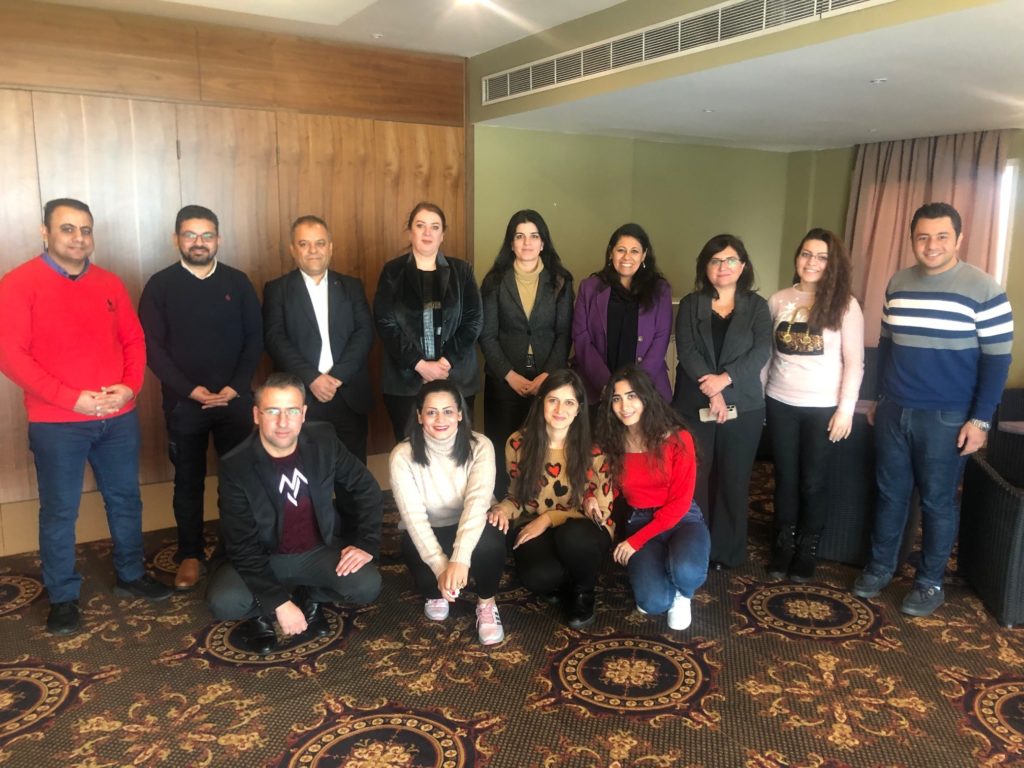With much of knowledge sharing on heritage gathering dominated by Western scholars and practitioners, a recent IDS-led workshop in Beirut, supported British Council’s Cultural Protection Fund, highlights the value of generating and sharing local knowledge across contexts. We gathered fifteen participants from Egypt, Iraq and Syria, all leading participatory initiatives to empower youth to gather their own heritage within their communities.

What do youth leaders from Syria, faculty from the University of Duhok and community practitioners from southern Egypt have in common? They are all leading initiatives in their countries that seek to empower youth to gather their own heritage within their communities.
Their heritage gathering activities include documenting:
- stories about their ancestors and contemporary everyday heroes of women and men who have left their mark on the people around them
- stories behind local buildings and structures
- the songs for all seasons and the festivals modern and old
- the norms and practices that are dynamically being re-negotiated
- art in all its forms, dress, poetry, and so much more.
Preserving heritage at risk of disappearing
Last month, we brought together fifteen participants from Egypt, Iraq and Syria at a workshop in Beirut to share lessons from their work.
The gathering was inaugurated by Ms Racha Nasreddin, the British Council’s Country Director for Syria, and was made possible through a grant from the British Council’s Cultural Protection Fund. The Fund is supporting a collaboration between IDS, Suryoyo Patriarchal Youth Department of the Syriac Orthodox Patriarchate of Antioch and Refcemi to build youth capacity to gather, preserve and disseminate the Syriac Christian intangible heritage in Syria at risk of forever disappearing.
Similar initiatives, supported by the IDS-led Coalition for Religious Equality and Inclusive Development (CREID), are also currently being undertaken with the University of Duhok and University of Mosul in Iraq, and with Coptic organisations in southern Egypt.
If there was one comment that was reiterated over and over again during the gathering by all participants was “why did we not come together much sooner?”.
They are absolutely right: we often organise knowledge sharing exchanges at the end of our projects to reflect back on our assumptions, practices and what we have learnt. And yet the accompaniment of peers along each other’s journey at an earlier phase of work is crucial because it enables collective problem solving and empathetic sounding board reflections among one another.
Applying the same participatory learning methods across very different contexts
Some might wonder what knowledge these youth leaders could share, given such starkly different contexts? Syria, a country torn by civil war; Iraq, a post-conflict context with high levels of precarity; and Egypt, a country where spaces for youth-led processes of heritage gathering need to operate within particular confines.
And yet, we were able to apply the same curriculum to building youth capacity to gather their heritage across all three contexts, albeit topped and tailed as needed for contextual appropriateness. We adopted for learning and engagement, conventionally used in development practice, but also interpret their heritage through community participation and preserve it for future generations.
The workshop participants talked about the opportunities that arise when youth find their roles as “heritage gatherers” truly appreciated and even elevated in their communities. They also exchanged experiences of what it means to create an enabling environment for youth to thrive and innovate in an area of work that is so new to them – they are usually the first “heritage gatherers” in their communities.
And yet as youth carve out a new space and role for themselves as heritage gatherers in the communities, those attending the gathering in Beirut were immersed in deep deliberation: what would sustainability look like?
